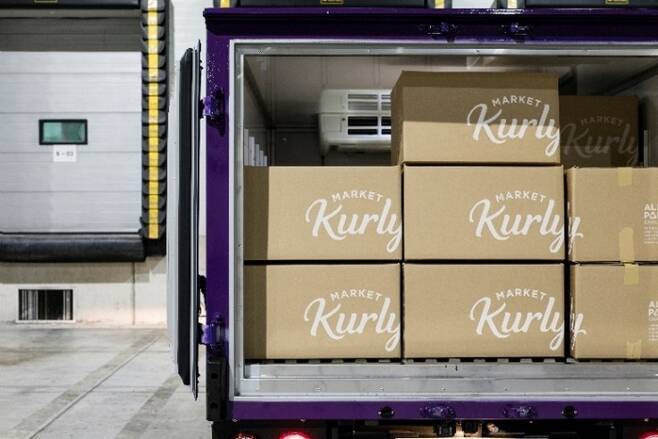S. Korea produced only 1 unicorn startup this year: report
By Shim Woo-hyunPublished : Aug. 26, 2021 - 17:58

South Korea has produced only one unicorn startup so far this year, falling far behind the US and China, according to a report from the Federation of Korean Industries.
Across the world, a total of 291 startups have attained unicorn status -- reaching a market valuation of over $1 billion -- during the January-July period, according to the FKI report, citing data from tech market research firm CB Insights.
Market Kurly, a food delivery and logistics platform here, was the only South Korean entry.
As of July 15, this year’s global tally has already far surpassed annual records in previous years.
The FKI said the number of US-based startups that have newly achieved unicorn status reached 169, accounting for 58.1 percent of the total. The number of Chinese unicorn startups came to 26, accounting for 8.9 percent.
The new additions this year puts the combined number of unicorn startups in the world at 779, according to the FKI.
Of the 779 unicorn startups, the number of South Korea-based startups came to 11, accounting for only 1.4 percent.
The US ranked No. 1 with an accumulated 388 unicorn startups, while China followed with 157. They were trailed by India and the UK with 36 and 31 unicorn startups, respectively.
When combined, the US and China accounted for around 70 percent of the total.
More than half of tech startups in the newly emerging sectors of fintech, software, e-commerce, artificial intelligence and health care were also from the US and China. The two countries have 332 unicorn startups in those five sectors, accounting for 62.8 percent.
The FKI said South Korea needs to scale up investment in local startups to find new growth drivers in emerging industries. Between 2018 and 2020, the country’s total investment in startups accounted for only 1.5 percent of the global sum.
During the same period, startup investment from the US and China accounted for 72.8 percent of the total.
The federation pointed out that venture entrepreneurs and investors often fail to exit their investment in startups. Only 52.9 percent of South Korean startups exited via mergers and acquisitions, while the other 47.1 percent of them went public.
Kim Bong-man, head of the international affairs division at the FKI, said, “South Korean conglomerates need to increase their investment in startups and be able to divest later, which will allow them to invest elsewhere in the future.”







![[Graphic News] More Koreans say they plan long-distance trips this year](http://res.heraldm.com/phpwas/restmb_idxmake.php?idx=644&simg=/content/image/2024/04/17/20240417050828_0.gif&u=)
![[KH Explains] Hyundai's full hybrid edge to pay off amid slow transition to pure EVs](http://res.heraldm.com/phpwas/restmb_idxmake.php?idx=644&simg=/content/image/2024/04/18/20240418050645_0.jpg&u=20240419100350)






![[From the Scene] Monks, Buddhists hail return of remains of Buddhas](http://res.heraldm.com/phpwas/restmb_idxmake.php?idx=652&simg=/content/image/2024/04/19/20240419050617_0.jpg&u=20240419175937)

![[KH Explains] Hyundai's full hybrid edge to pay off amid slow transition to pure EVs](http://res.heraldm.com/phpwas/restmb_idxmake.php?idx=652&simg=/content/image/2024/04/18/20240418050645_0.jpg&u=20240419100350)

![[Today’s K-pop] Illit drops debut single remix](http://res.heraldm.com/phpwas/restmb_idxmake.php?idx=642&simg=/content/image/2024/04/19/20240419050612_0.jpg&u=)